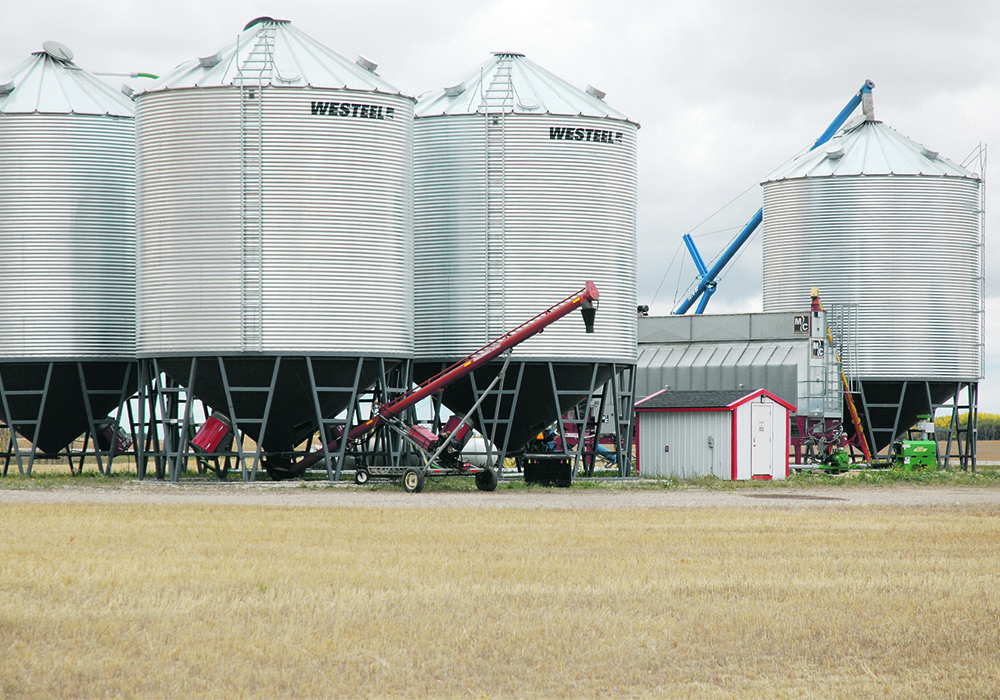The House of Commons overwhelmingly passed a bill to make food cheaper and help farmers.
In fact, the House passed the bill twice.
But after two years, the bill still isn’t law, and that delay has cost families and farmers almost $100 million.
What’s stalling the democratic will of our elected representatives? The Senate.
The bill is simple. The feds gave farmers an exemption on the carbon tax for diesel and gasoline. That helps farmers keep food prices down and compete globally. However, the feds forgot to exempt the propane and natural gas farmers need to dry their grain and heat their barns.
Read Also

High prices see cow-calf producers rushing to incorporate
Farm accountants are reporting a steady stream of cow-calf producers rushing to get their operations incorporated ahead of selling their calves this fall.
So Conservative MP Ben Lobb introduced Bill C-234 in February 2022 to fix that and extend the exemption to farmers’ natural gas and propane.
Bill C-234 would reduce the “financial burden the carbon tax places on all the necessary practices undertaken by farmers and ranchers like drying grain, irrigating crops or heating and cooling livestock barns,” said MP John Barlow, vice-chair of the House agriculture committee.
It may seem like a small change, but the carbon tax is a big cost for farmers, even with the existing exemptions.
According to the Canadian Federation of Independent Business, the carbon tax cost Canadian farmers an average of $14,000 in 2019. Prime minister Justin Trudeau has cranked up his carbon tax every year since. That means higher costs for farmers and higher grocery prices for Canadians.
The carbon tax on propane and natural gas will cost farmers $1 billion through 2030, according to the Parliamentary Budget Officer.
Here’s the infuriating part: the problem should be fixed already.
This March, MPs passed Lobb’s Bill C-234 to remove the carbon tax from these farm fuels. Conservatives, New Democrats, the Bloc Québécois, both Green Party members and a couple of independents voted in favour of the bill. Liberals Kody Blois, Heath MacDonald and Robert Morrissey also voted in favour.
This legislation has the support of the majority in the House of Commons, and MPs from every party voted for it.
The bad news is the bill has been held up in the Senate ever since.
With their $169,600 base salary, maybe senators aren’t too worried about the price of milk, hamburger meat or chicken, but many Canadians are. In fact, six in 10 worry their paycheque might not be enough to feed their families.
Farmers are working 20-hour days to get in the harvest. You would think that might spur the Senate to more briskly shuffle this duly passed bill through the unelected Upper Chamber.
However, the Senate doesn’t care. It took a gander at the bill during second reading on June 13. Since then, the bill has been collecting dust in the agriculture committee, which is chaired by senator Robert Black.
The Senate’s fisheries committee thought it was important to meet during the summer break to “examine and report on Canada’s seal populations and their effect on Canada’s fisheries.” So why wasn’t Black willing to give up a couple of summer vacation days to ensure farmers got relief during harvest?
This isn’t the first time the Senate held up a bill to remove the carbon tax on farms.
Conservative MP Philip Lawrence introduced the original version of Bill C-234 in September 2020. It made its way through the House of Commons to the Senate on June 23, 2021. The Senate failed to pass it.
Canadians have been waiting for a law to remove the carbon tax from farm fuels for three years now. The delay has already cost taxpayers almost $100 million.
Canadians don’t expect much from senators, but is it too much to ask that they pass this bill?
Talk is cheap — especially in Ottawa.
Don’t believe any politician, or senator, who claims they want to improve affordability unless they are willing to do one simple thing: scrap their carbon taxes.
Franco Terrazzano is the federal director of the Canadian Taxpayers Federation. This article was originally published on the Troy Media website.















